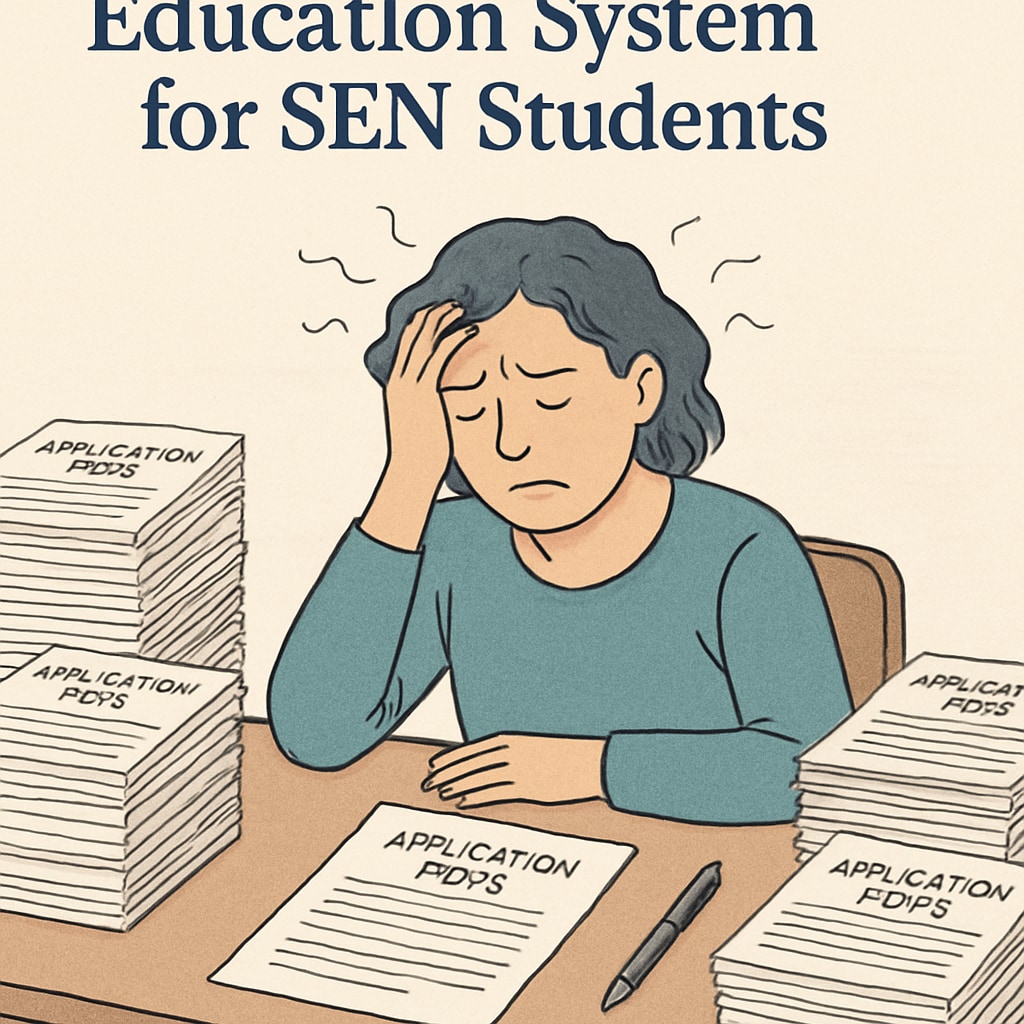For parents of children with special educational needs (SEN), navigating the education system can be an uphill battle. A UK family’s recent struggle to transfer their 15-year-old daughter, who has complex psychological needs, to a new school highlights the systemic challenges faced by SEN students and their families. This case underscores the roles of school applications, special educational needs, and the responsibilities of local authorities in ensuring every child receives appropriate education.
Barriers in the School Application Process
When families of SEN students attempt to apply for a new school, they often encounter bureaucratic hurdles that delay or obstruct the process. In the UK, the local authority (LA) is responsible for supporting the education of SEN children. However, many families report delays in decision-making, lack of communication, and inadequate support from their LAs. For example, in this case, the parents were left waiting for months with little to no updates about their daughter’s school placement. Such delays not only disrupt the child’s education but also exacerbate their existing mental health conditions.

Moreover, the lack of transparency in the allocation of school places adds to the frustration. Parents are often not given clear reasons for the rejection or delay of their applications. This leaves families feeling powerless and uncertain about their children’s futures.
The Role of Local Authorities in SEN Education
Local authorities are legally obligated to ensure that children with SEN have access to suitable education. This includes identifying and assessing the child’s needs, preparing an Education, Health, and Care Plan (EHCP), and working with schools to provide the necessary accommodations. Unfortunately, many families, including the one mentioned, find that their LAs fall short of these responsibilities.
For instance, the family in question struggled to get their daughter’s needs acknowledged by the LA. Despite having professional recommendations for specialized support, the process of securing an EHCP or a place in a specialized school was slow and riddled with obstacles. This raises questions about whether LAs are adequately resourced and trained to handle the complexities of SEN education.

Parental Advocacy: A Lifeline for SEN Students
In the face of systemic barriers, parents often take on the role of advocates for their children. They attend meetings, write appeals, and even seek legal advice to ensure their child’s educational rights are upheld. For the family in this case, the mother spent countless hours researching legal frameworks and engaging with advocacy groups to push for her daughter’s placement in a suitable school.
Resources such as the UK-based Independent Provider of Special Education Advice (IPSEA) and organizations like The National Autistic Society have been invaluable for families navigating these challenges. They provide guidance, legal support, and a sense of community for parents who might otherwise feel isolated in their struggles.
Systemic Changes Needed for SEN Education
While parental advocacy is crucial, systemic changes are necessary to ensure that SEN students receive the education they deserve without undue stress on their families. These changes could include:
- Streamlining the EHCP process to reduce delays and ensure timely support for SEN students.
- Improving communication and transparency between LAs and families.
- Providing additional funding and training for schools and LAs to handle SEN cases effectively.
- Establishing independent review boards to oversee SEN placement disputes and ensure fairness.
Implementing these measures would not only benefit SEN students but also reduce the emotional and financial burden on their families.
Conclusion: A Call for Action
The struggle of this UK family is not an isolated case but a reflection of broader systemic issues in SEN education. It highlights the need for greater accountability from local authorities and more robust support systems for families. As we consider the importance of inclusivity in education, it is vital to address these challenges and ensure that every child, regardless of their needs, has access to quality education.
For parents navigating similar challenges, resources like advocacy groups and legal advice can provide much-needed support. However, lasting change will require a collective effort from policymakers, educators, and communities to create an education system that truly meets the needs of all students.
Readability guidance: Short paragraphs, active voice, and frequent use of transition words improve readability. Lists are used to summarize complex points, and external resources provide additional context and credibility.


